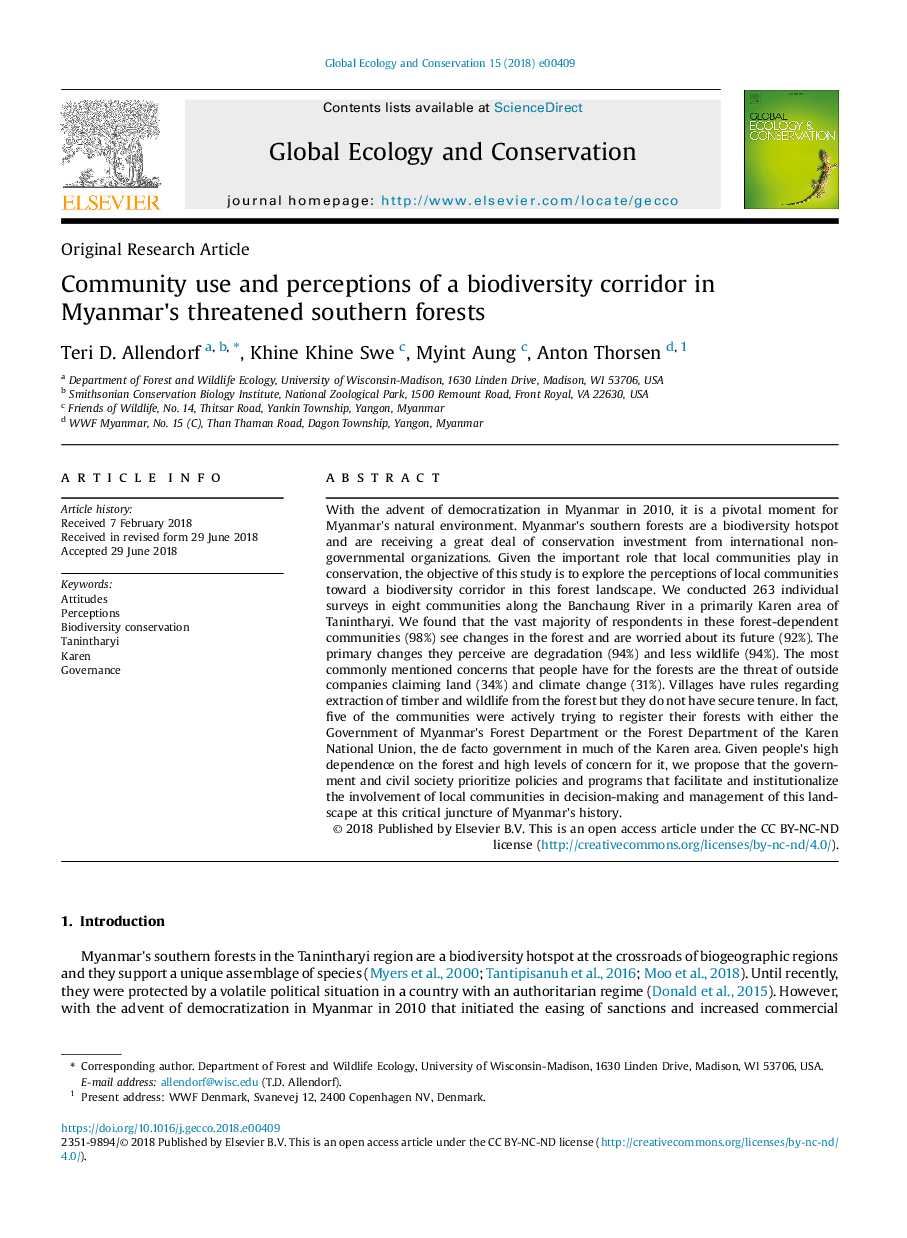| Article ID | Journal | Published Year | Pages | File Type |
|---|---|---|---|---|
| 8846211 | Global Ecology and Conservation | 2018 | 12 Pages |
Abstract
With the advent of democratization in Myanmar in 2010, it is a pivotal moment for Myanmar's natural environment. Myanmar's southern forests are a biodiversity hotspot and are receiving a great deal of conservation investment from international non-governmental organizations. Given the important role that local communities play in conservation, the objective of this study is to explore the perceptions of local communities toward a biodiversity corridor in this forest landscape. We conducted 263 individual surveys in eight communities along the Banchaung River in a primarily Karen area of Tanintharyi. We found that the vast majority of respondents in these forest-dependent communities (98%) see changes in the forest and are worried about its future (92%). The primary changes they perceive are degradation (94%) and less wildlife (94%). The most commonly mentioned concerns that people have for the forests are the threat of outside companies claiming land (34%) and climate change (31%). Villages have rules regarding extraction of timber and wildlife from the forest but they do not have secure tenure. In fact, five of the communities were actively trying to register their forests with either the Government of Myanmar's Forest Department or the Forest Department of the Karen National Union, the de facto government in much of the Karen area. Given people's high dependence on the forest and high levels of concern for it, we propose that the government and civil society prioritize policies and programs that facilitate and institutionalize the involvement of local communities in decision-making and management of this landscape at this critical juncture of Myanmar's history.
Related Topics
Life Sciences
Agricultural and Biological Sciences
Ecology, Evolution, Behavior and Systematics
Authors
Teri D. Allendorf, Khine Khine Swe, Myint Aung, Anton Thorsen,
